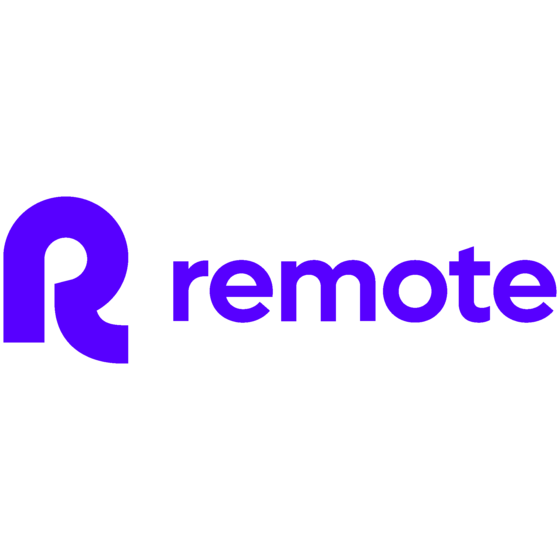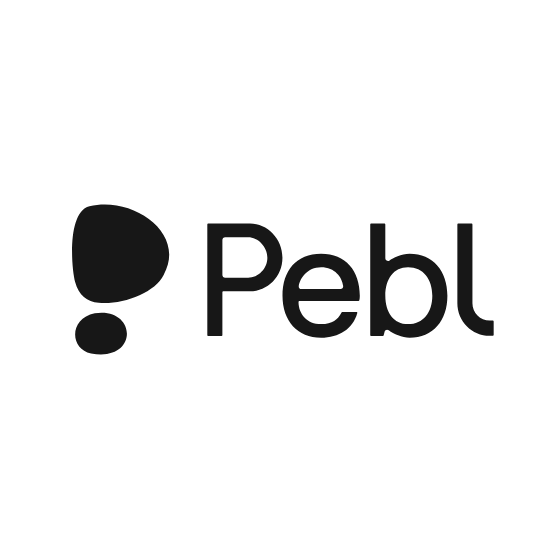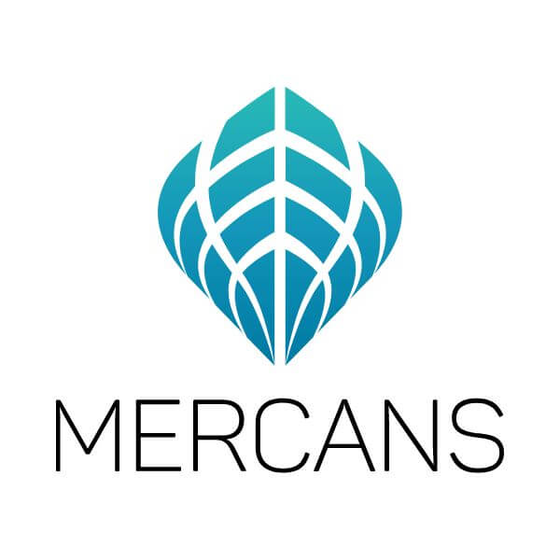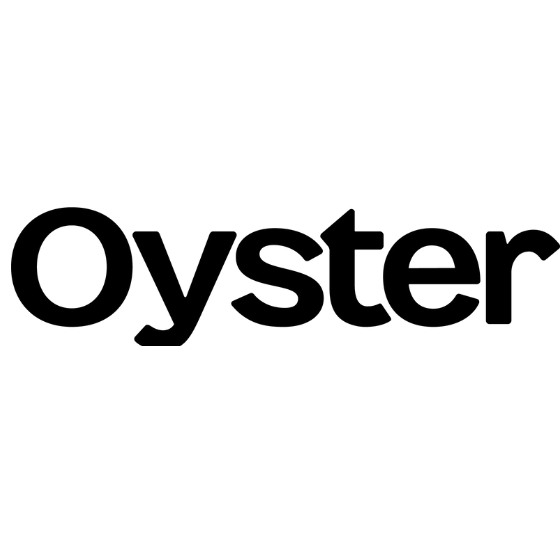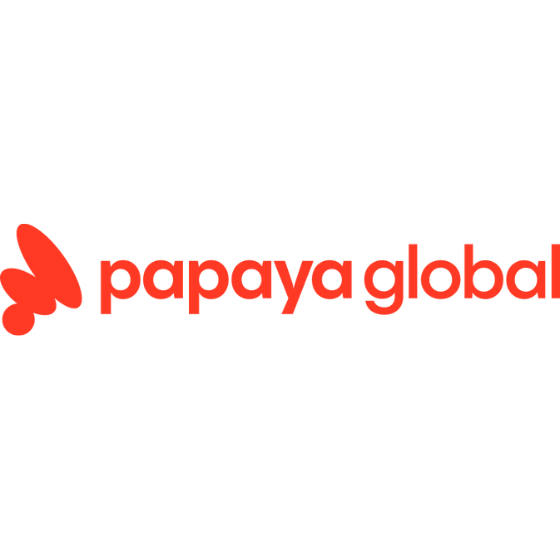Best Multiplier Alternatives Shortlist
Here’s my shortlist of the best Multiplier alternatives:
Multiplier is a reputable and powerful employer or record and global HR platform, but it might not be the best fit for your needs.
In this article, I'll walk you through my top picks for Multiplier alternatives. You'll get insights into each tool's unique features, benefits, and use cases to help you make the best decision for your organization.
What is Multiplier?
Multiplier is a global employee management platform designed to simplify hiring, onboarding, and payroll for international teams. HR professionals and business leaders often use Multiplier to manage compliance and payroll across different countries.
Its features, like automated payroll, compliance management, and employee onboarding support your team's global operations. Overall, Multiplier helps you manage your international workforce efficiently and in compliance with local regulations.
Best Multiplier Alternatives Summary
This comparison chart summarizes pricing details for my top Multiplier alternative selections to help you find the best one for your budget and business needs.
| Tool | Best For | Trial Info | Price | ||
|---|---|---|---|---|---|
| 1 | Best for global employee benefits | Free trial available | From $29/user/month | Website | |
| 2 | Best for compliance coverage | Free demo available | From $29/contractor/month to $499/EOR employee/month | Website | |
| 3 | Best for flexible employment models | Free demo available | From $599/employee/month | Website | |
| 4 | Best for fast global expansion | Free demo available | Pricing upon request | Website | |
| 5 | Best for simple global hiring | Free demo available | Contact for pricing | Website | |
| 6 | Best for large-scale payroll | Free demo available | Pricing upon request | Website | |
| 7 | Best for all-in-one workforce needs | Free demo available | From $8/user/month (billed annually) | Website | |
| 8 | Best for international workforce growth | Free trial + demo available | From $29/month | Website | |
| 9 | Best for distributed team hiring | 30-day free trial | From $25/employee/month | Website | |
| 10 | Best for cross-border payroll tech | Free demo available | From $15/employee/month | Website |
Why Trust Our Software Reviews
-

Kudoboard
Visit WebsiteThis is an aggregated rating for this tool including ratings from Crozdesk users and ratings from other sites.4.8 -

Native Teams
Visit WebsiteThis is an aggregated rating for this tool including ratings from Crozdesk users and ratings from other sites.4.9 -

Rippling
Visit WebsiteThis is an aggregated rating for this tool including ratings from Crozdesk users and ratings from other sites.4.8
Best Multiplier Alternatives Reviews
Below are my detailed summaries of the best Multiplier alternatives that made it onto my shortlist. My reviews offer a detailed look at the key features, pros & cons, integrations, and ideal use cases of each tool to help you find the best one for you.
Remote is a global employment platform built for HR teams and leaders managing distributed staff. It covers payroll, compliance, and employee benefits across international markets.
Why Remote is a good Multiplier alternative: Remote gives your team access to global employee benefits that match local standards wherever you hire. You can provide health insurance, retirement plans, and equity options through one platform. The service also manages taxes and social contributions to keep you compliant. This makes it easier for you to offer competitive benefits to attract and retain talent worldwide.
Standout Features & Integrations:
Features include misclassification risk tools that help you avoid compliance mistakes, cost calculators to estimate hiring expenses, and relocation support for moving employees abroad. You can also manage employee surveys to gather workplace insights. In my experience, these features give your team more clarity and control.
Integrations include BambooHR, HiBob, Greenhouse, Ashby, QuickBooks, Xero, NetSuite, Gusto, Personio, and SAP SuccessFactors.
Pros and cons
Pros:
- Useful compliance tools
- Covers over 150 countries
- Wide global benefits options
Cons:
- Learning curve on features
- Setup can take time
Omnipresent is an employer of record platform built for HR leaders and managers expanding into global markets. It helps you manage international employment, payroll, and compliance across more than 160 countries.
Why Omnipresent is a good Multiplier alternative: Omnipresent gives your team reliable compliance coverage by handling local labor laws, contracts, and tax obligations. You can onboard employees in days while staying aligned with regulations in each country. The platform also manages benefits and social contributions on your behalf. This focus reduces compliance risks and keeps your team free to grow globally without legal stress.
Standout Features & Integrations:
Features include expense management that simplifies reimbursements, document management for contracts and employee records, and an OmniPlatform dashboard for overseeing your global workforce. You can also use tools like OmniAtlas and OmniCalculator to understand country-specific employment costs. In my experience, these features make managing distributed teams less complicated.
Integrations include Xero, Sage, HiBob, Freshteam, Gusto, NetSuite, QuickBooks, Keka, HR Cloud, and Teamtailor.
Pros and cons
Pros:
- Onboarding in days not months
- Covers 160+ countries
- Strong compliance focus
Cons:
- Few customization settings
- Reporting options limited
Pebl (formerly Velocity Global) is a global employment platform built for HR teams and leaders managing distributed workforces. It provides payroll, benefits, and compliance solutions across more than 185 countries.
Why Velocity Global is a good Multiplier alternative: Velocity Global offers flexible employment models by supporting direct hires, contractors, and employer of record services. You can adapt hiring approaches depending on market needs without setting up local entities. The platform also manages global benefits and pensions to fit diverse employment types. This flexibility makes it easier for your team to adjust to shifting workforce strategies.
Standout Features & Integrations:
Features include global equity programs for distributed staff, immigration support for hiring talent abroad, and localized benefits that align with country standards. You can also use workforce planning tools to prepare for scaling. In my experience, these features help companies stay adaptable.
Integrations include Greenhouse, ADP, JazzHR, Oracle, Workday, HiBob, BambooHR, QuickBooks, Xero, and NetSuite.
Pros and cons
Pros:
- Strong global benefits support
- Covers 185+ countries
- Flexible employment choices
Cons:
- Learning curve on tools
- Setup can take time
Globalization Partners (G-P) is a global employment platform built for HR leaders and managers scaling across borders. It provides payroll, compliance, and hiring support in over 180 countries.
Why Globalization Partners (G-P) is a good Multiplier alternative: G-P focuses on fast global expansion by letting you hire employees without setting up entities. You can generate compliant contracts in minutes and onboard workers quickly. The platform also handles payroll, taxes, and benefits with an AI-powered compliance engine. These tools let your team expand rapidly while reducing legal risks.
Standout Features & Integrations:
Features include AI-driven guidance through G-P Gia for compliance checks, global contractor management for quick onboarding, and proactive policy monitoring to reduce risks. You can also use relocation support for global hires. In my experience, these features make scaling less complicated.
Integrations include Workday, Oracle, SAP SuccessFactors, HiBob, BambooHR, ADP, QuickBooks, NetSuite, Rippling, and Gusto.
Pros and cons
Pros:
- AI-driven compliance support
- Covers 180+ countries
- Onboarding in minutes
Cons:
- Setup takes guidance
- Limited customization options
RemoFirst is an employer of record platform that serves HR teams and leaders managing international hiring. It provides tools to handle payroll, compliance, and contractor management across multiple countries.
Why RemoFirst is a good Multiplier alternative: RemoFirst focuses on making global hiring simple by covering employment contracts, onboarding, and compliance in over 180 countries. Your team can manage payroll in local currencies, oversee benefits, and even handle visas and work permits. A dedicated support manager helps guide you through the process, so hiring abroad doesn’t become overwhelming. This direct support and straightforward setup make it easy to expand your team globally.
Standout Features & Integrations:
Features include background checks that give you confidence in new hires, workforce management tools for distributed teams, and quick employee onboarding that can be completed in a day. You can also provide healthcare options through RemoHealth. In my experience, these features take a lot of stress out of managing global workers.
Integrations include QuickBooks, Xero, Netsuite, BambooHR, HiBob, Workday, ADP, Deel, Rippling, and Gusto.
Pros and cons
Pros:
- Covers 180+ countries
- Dedicated support manager
- Fast onboarding in 24 hours
Cons:
- No mobile app
- No API integrations
Mercans is a global payroll and HR platform designed for companies managing large international teams. It provides payroll delivery, compliance, and workforce management.
Why Mercans is a good Multiplier alternative: Mercans handles large-scale payroll needs with its proprietary HR Blizz platform, giving your team centralized payroll automation across multiple regions. You can manage multi-currency payments and ensure local compliance through built-in country intelligence. The system also consolidates payroll reporting into one dashboard. This approach helps you scale operations globally without losing control over payroll accuracy.
Standout Features & Integrations:
Features include country intel that tracks local labor rules, workforce analytics for better payroll insights, and digital onboarding tools for new hires. You can also access global mobility support for employee relocations. In my experience, these features simplify complex payroll demands at scale.
Integrations include Workday, SAP SuccessFactors, Oracle, Ceridian, UKG, Darwinbox, XperienceHR, HiBob, QuickBooks, and NetSuite.
Pros and cons
Pros:
- Unified payroll platform
- Covers 160+ countries
- Scales well for large teams
Cons:
- Steeper learning curve
- The setup process can be lengthy
Rippling is a workforce management platform built for HR, IT, and finance teams. It unifies employee data, payroll, benefits, and device management into one system.
Why Rippling is a good Multiplier alternative: Rippling covers all-in-one workforce needs by combining HR, payroll, and IT in one place. You can automate onboarding, manage time and attendance, and handle global payroll. The platform also supports benefits administration alongside device and app management. This wide coverage makes it easier for your team to manage employees from a single platform.
Standout Features & Integrations:
Features include workflow automation that triggers actions across apps, analytics to generate reports on any data, and policy tools to enforce company rules automatically. You can also build custom apps without code using app studio. In my experience, these tools give teams better control over operations.
Integrations include QuickBooks, Xero, NetSuite, Greenhouse, Ashby, 1Password, Carta, Paypal, Yubikey, and Slack.
Pros and cons
Pros:
- Custom app building
- Supports global payroll
- Combines HR IT and finance
Cons:
- Learning curve on features
- Setup can be complex
Deel is a global people platform designed for HR leaders and managers building distributed teams. It provides payroll, compliance, and hiring services across more than 150 countries.
Why Deel is a good Multiplier alternative: Deel helps your team grow internationally by handling payroll, contracts, and compliance in multiple regions. You can hire employees or contractors without setting up local entities. Its tools also cover benefits, taxes, and equity so your team can expand quickly. This flexibility makes it easier to scale your workforce wherever you need.
Standout Features & Integrations:
Features include workforce reporting that gives you insights on spending and performance, relocation support for employees moving abroad, and equity management to align global compensation. You can also access tools for mergers and acquisitions support. In my experience, these features help companies grow without barriers.
Integrations include QuickBooks, Xero, NetSuite, Workday, BambooHR, HiBob, Greenhouse, Ashby, SAP SuccessFactors, and Oracle.
Pros and cons
Pros:
- Equity management included
- Strong compliance hub
- Covers 150+ countries
Cons:
- Learning curve for HR tools
- Some features feel complex
Oyster HR is a global employment platform designed for HR teams and leaders managing remote and distributed workforces. It provides payroll, compliance, and benefits in over 180 countries.
Why Oyster HR is a good Multiplier alternative: Oyster HR makes distributed team hiring simple by letting you onboard employees and contractors without creating local entities. You can create compliant contracts quickly and manage payments across multiple countries. The platform also includes localized benefits to help retain talent globally. These features give your team the tools to expand and manage distributed staff with ease.
Standout Features & Integrations:
Features include salary insights to understand pay benchmarks, visa sponsorship to relocate talent, and contractor conversion tools to transition workers into full-time employees. You can also use global employment cost calculators to plan hiring budgets. In my experience, these features help you make faster and smarter hiring decisions.
Integrations include Greenhouse, HiBob, Workday, BambooHR, Personio, QuickBooks, Xero, NetSuite, Gusto, and SAP SuccessFactors.
Pros and cons
Pros:
- Supports 180+ countries
- Localized benefits included
- Fast onboarding in 48 hours
Cons:
- Some features feel complex
- Setup requires guidance
Papaya Global is a global payroll and payments platform for HR leaders and managers overseeing distributed workforces. It provides payroll, compliance, and workforce payments in over 160 countries.
Why Papaya Global is a good Multiplier alternative: Papaya Global focuses on cross-border payroll tech with automated payments in 130+ currencies. You can run payroll in multiple countries while managing taxes, social contributions, and benefits through one platform. The system also supports contractor payments with guaranteed delivery dates. These features make it easier for your team to pay employees and contractors anywhere without errors or delays.
Standout Features & Integrations:
Features include workforce analytics to track payroll data, digital wallets that let employees receive payments flexibly, and equity management tools for global staff. You can also access country-specific insights through Countrypedia. In my experience, these features simplify payroll management at scale.
Integrations include Workday, BambooHR, HiBob, QuickBooks, Xero, Oracle, SAP SuccessFactors, NetSuite, ADP, and Gusto.
Pros and cons
Pros:
- Equity management tools
- Automated payroll processing
- Supports 130+ currencies
Cons:
- Some features feel complex
- Learning curve for new users
Other Multiplier Alternatives
Here are some additional Multiplier alternatives that didn’t make it onto my shortlist, but are still worth checking out
- Native Teams
For contractor payments
Multiplier Alternatives Selection Criteria
When selecting the best Multiplier alternatives to include in this list, I considered common buyer needs and pain points related to global employee management products, like compliance with local labor laws and efficient payroll processing. I also used the following framework to keep my evaluation structured and fair:
Core Functionality (25% of total score)
To be considered for inclusion in this list, each solution had to fulfill these common use cases:
- Manage global payroll
- Ensure compliance with local laws
- Handle multi-currency transactions
- Provide employee benefits administration
- Support employee onboarding
Additional Standout Features (25% of total score)
To help further narrow down the competition, I also looked for unique features, such as:
- Advanced analytics for workforce insights
- Customizable compliance alerts
- Integrated time tracking
- Automated tax calculations
- Multi-language support
Usability (10% of total score)
To get a sense of the usability of each system, I considered the following:
- Intuitive user interface
- Easy navigation
- Quick access to support
- Mobile accessibility
- User feedback mechanisms
Onboarding (10% of total score)
To evaluate the onboarding experience for each platform, I considered the following:
- Availability of training videos
- Interactive product tours
- Access to templates
- Live webinars
- Chatbot assistance
Customer Support (10% of total score)
To assess each software provider’s customer support services, I considered the following:
- 24/7 support availability
- Response time
- Multichannel support options
- Dedicated account managers
- Availability of a knowledge base
Value For Money (10% of total score)
To evaluate the value for money of each platform, I considered the following:
- Transparent pricing
- Competitive pricing compared to features
- Discounts for annual billing
- Free trial availability
- Cost of additional features
Customer Reviews (10% of total score)
To get a sense of overall customer satisfaction, I considered the following when reading customer reviews:
- Overall satisfaction ratings
- Commonly cited strengths
- Commonly cited weaknesses
- Frequency of updates
- Recommendations from other users
Why Look For A Multiplier Alternative?
While Multiplier is a good choice of global employee management, there are a number of reasons why some users seek out alternative solutions. You might be looking for a Multiplier alternative because…
- You need more customization options
- Your team operates in unsupported regions
- You're looking for better integration capabilities
- You need more advanced analytics tools
- Your team requires a lower-cost solution
- You're seeking more flexible payment plans
If any of these sound like you, you’ve come to the right place. My list contains several global employee management options that are better suited for teams facing these challenges with Multiplier and looking for alternative solutions.
Multiplier Key Features
Here are some of the key features of Multiplier, to help you contrast and compare what alternative solutions offer:
- Global payroll management: Handles payroll across multiple countries, ensuring payments are made accurately and on time.
- Compliance management: Keeps your team compliant with local labor laws, reducing legal risks.
- Employee benefits administration: Manages employee benefits packages tailored to local markets.
- Time-off management: Automates leave calculations based on country-specific rules, ensuring accurate entitlements.
- Contractor management: Supports hiring and managing contractors globally, simplifying the process.
- Real-time reporting: Provides insights into workforce data, helping you make informed decisions.
- Integrated time tracking: Supports tracking of work hours across different time zones and schedules.
- Automated onboarding: Streamlines the process of bringing new employees into the company.
- Expense management: Consolidates and manages employee expenses efficiently.
What’s Next:
If you're in the process of researching global employee management, connect with a SoftwareSelect advisor for free recommendations.
You fill out a form and have a quick chat where they get into the specifics of your needs. Then you'll get a shortlist of software to review. They'll even support you through the entire buying process, including price negotiations.

